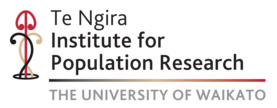Lost points of intervention in pathways to single adult homelessness in Hamilton, New Zealand
Presenter: Dr Carol McMinn
Tuesday 10th May, 2022. 1pm to 2pm
via zoom
Presentation Abstract:
Despite a broad consensus in international and local literature about contributing factors which raise the risk of homelessness, many misconceptions still remain about which specific factors have contributed to homelessness in New Zealand. Policy responses to homelessness in this country focus on a person’s need for adequate housing as this is the prime presenting issue. However, many who experience homelessness have complex existing background issues that have also contributed to them becoming homeless, and these are equally important targets for policy responses.
Those who are single adults (18 years or over), without dependent children and homeless are often those found living in the most precarious circumstances. This cohort are the focus of this presentation. Research was carried out in 2019 in Hamilton, New Zealand involving interviews with 100 participants engaged with The People’s Project, a Housing First service in this town.
Although everyone’s circumstances were unique, results revealed a series of commonly occurring disruptive events throughout participants lives, starting for some as early as 6 years old, and a generalizable pathway to single adult homelessness. Various other contributing factors and trigger events were also identified. Additionally, participants provided recommendations about critical points of intervention along this pathway, which provides important implications for policy responses in this context. Critically, the voice of those with lived experience is well represented in this research.
Self-care note: This presentation includes discussion about physical, sexual, and emotional abuse, neglect, domestic violence, suicidality, selfharming, and other adverse and traumatic life experiences. If attendees are struggling with any of these issues, please consider if attending this presentation is right for you at this time.
Bio:
Carole McMinn is Manager of The People’s Project, a Housing First homeless service in Hamilton, New Zealand. She has spent time as a case manager and outreach team member with this service, as well as participating in the translation of a Housing First approach in the New Zealand context. She completed her doctorate in Population Studies with the University of Waikato’s Te Ngira Institute of Population Research. Her research focuses on determining pathways to homelessness for single adult homeless in Hamilton, New Zealand. This includes exploring the contribution of adverse childhood experiences to raising risk of later-life homelessness. She is interested in the application and adaptation of Housing First approaches to alleviating homelessness and pathways to single adult homelessness.
Rethinking residential segregation through an anti-racist lens
Presenter: Jessica Terruhn, Te Whare Wānanga o Waikato/The University of Waikato
Tuesday 30th November, 2021. 1pm to 2pm
61473497
Presentation Abstract:
Segregation indices have long been a prominent indicator of the uneven spatial distribution of urban residents along, broadly, lines of ethnic affiliation and/or socio-economic status. While much effort has gone into developing sophisticated ways of measuring levels of segregation, the field has continued to build on assumptions first formulated in early 20th century US-based scholarship. Driven by expectations of immigrant integration and concerns about social problems arising from concentrations of poverty, segregation studies have predominately examined patterns of concentrations of ethnic minorities and socio-economically marginalised groups. Such approaches to knowledge production perpetuate deficit perspectives and, in conjunction with the disemination of such knowledge, make minoritised and marginalised populations amenable to being monitored, managed and, at times, displaced while doing little to address the structural causes of spatial stratification. This presentation examines alternatives for conceptualising segregation through an anti-racist lens, that is, in ways that disrupt orthodox perspectives and replace them with analyses of the structural causes of spatial inequities, as well as analyses of spatial concentrations of majorities and wealth and the reproductive relations between concentrations of wealth and poverty.
Bio:
 Jessica Terruhn is a Research Fellow at the National Institute for Demographic and Economic Analysis (NIDEA). After completing her PhD in Sociology at the University of Auckland, she worked as a Senior Research Officer on the CaDDANZ research programme at Massey University. Her research expertise lies at the intersections of urban studies and racism, migraion and settler colonialism. Her most recent research has focused on the formal and informal management of difference and the spatial reproduction of inequalities. She is also co-convener of the Aotearoa Migration Research Network (AMRN).
Jessica Terruhn is a Research Fellow at the National Institute for Demographic and Economic Analysis (NIDEA). After completing her PhD in Sociology at the University of Auckland, she worked as a Senior Research Officer on the CaDDANZ research programme at Massey University. Her research expertise lies at the intersections of urban studies and racism, migraion and settler colonialism. Her most recent research has focused on the formal and informal management of difference and the spatial reproduction of inequalities. She is also co-convener of the Aotearoa Migration Research Network (AMRN).
Re-thinking how we measure socioeconomic position in
the population aged ≥65 years
Dan Exeter, Michael Browne, Tommi Robinson-Chen, Ngaire Kerse, Arier Lee
School of Population Health, the University of Auckland
Presenter: Associate Professor Dan Exeter
Tuesday 22nd June, 2021
1.10pm
Any enquiries should be directed to
Shefali Pawar on 07 837 9198 or shefali.pawar@waikato.ac.nz
Presentation abstract:
In 2016, New Zealand’s population aged ≥65 represented 15% of the total population, and is projected to increase significantly over the n;ext 50 years. Indeed the official population projections suggest that the population aged ≥65 will comprise between 24% and 33% (median 28%) of the total population by 2068. By contrast and using the median population projections, the working age population (18-64 years) is expected to decline from 65% in 2016 to 56% by 2068, with similar declines among youth (0-14 years) from 20% to 15%.
In many studies of health inequalities among the population ≥65 years, researchers typically use conventional measures of socioeconomic position such as income, occupational class and/or educational attainment, or area-level deprivation indices, to represent the social circumstances of their population. However, there is growing consensus that these measures fail to represent the socioeconomic conditions experienced by older people.
We used the Integrated Data Infrastructure (IDI) – a large research database containing microdata about people and households maintained by Statistics New Zealand – to capture socioeconomic indicators of relevance to those aged ≥65. We identified more than 40 potential person-specific indicators of SEP from >10 data sources including the 2013 Census, the Ministry of Social Development, the NZ Transport Association and Inland Revenue, and various spatial data providers.
Here, we describe how the indicators were grouped into domains, weighted and combined to create a deprivation score for individuals aged ≥65, (the Older Person’s Index of Multiple Deprivation [OPIMD]). We explore associations between the OPIMD and health outcomes, comparing these to the Index of Multiple Deprivation (IMD), before outlining the policy implications of this new tool and opportunities for future research.
Bio:
 Associate Professor Dan Exeter is a health geographer/spatial epidemiologist based in the School of Population Health at the University of Auckland. His research focuses on the identification of, and potential solutions to, health disparities due to socio-economic position, area disadvantage or ethnicity. His research employs the use of Geographical Information Science, big-data and the secondary analysis of large administrative datasets such as those within Statistics New Zealand’s Integrated Data Infrastructure (IDI). He led the development of the New Zealand Index of Multiple Deprivation (IMD) and has published extensively on geographical disparities in health and society.
Associate Professor Dan Exeter is a health geographer/spatial epidemiologist based in the School of Population Health at the University of Auckland. His research focuses on the identification of, and potential solutions to, health disparities due to socio-economic position, area disadvantage or ethnicity. His research employs the use of Geographical Information Science, big-data and the secondary analysis of large administrative datasets such as those within Statistics New Zealand’s Integrated Data Infrastructure (IDI). He led the development of the New Zealand Index of Multiple Deprivation (IMD) and has published extensively on geographical disparities in health and society.
Determinants of ethnic identity among adolescents in Auckland
Presenter: Mohana Mondal, PHD Candidate, Research Officer
Tuesday 20th April 2021
1pm
Presentation abstract:
Auckland is among the world’s most ethnically diverse cities. Like most large cities, its population is also youthful. In this paper, we focus on the dynamics of self-declared ethnic identities of adolescents in Auckland, using New Zealand Linked Census data for four inter-censal periods between 1991 and 2013. Our dataset links the same young person across consecutive Censuses (i.e., those aged 13-17 in one Census are aged 18-22 in the following Census five years later). We aim to capture the first conscious ethnic identity affiliation of adolescents, assuming that their ethnic identities are initially recorded by their parents, but subsequently determined by the adolescent themselves when they transition to adulthood. We classify our predictor variables into individual, family and neighbourhood-level variables. We find that an adolescent’s ethnicity stated at the previous census, parents’ ethnicity, and the ethnic makeup of the neighbourhood are all major determinants of ethnic-identity choices.
Bio:
 Mohana is currently working with the Waikato Medical Research Team, the University of Waikato, as a Research Officer (Health Economist). She works on exploring the costs of breast cancer in New Zealand. She is also a co-lecturer for the Epidemiology and Bio-statistics paper (BHealth), Division of Health, Engineering, Computing & Science, the University of Waikato.
Mohana is currently working with the Waikato Medical Research Team, the University of Waikato, as a Research Officer (Health Economist). She works on exploring the costs of breast cancer in New Zealand. She is also a co-lecturer for the Epidemiology and Bio-statistics paper (BHealth), Division of Health, Engineering, Computing & Science, the University of Waikato.
Mohana has submitted her PhD (Population Economics) titled ‘Ethnic Mobility and the Spatial Distribution of Ethnicity in Auckland’ and is currently waiting for her oral examination. She works on spatial sorting, ethnic identity and ethnic mobility in Auckland, New Zealand. Her work also includes dynamic microsimulation modelling for future ethnic diversity projections at the local levels across the Auckland city.
